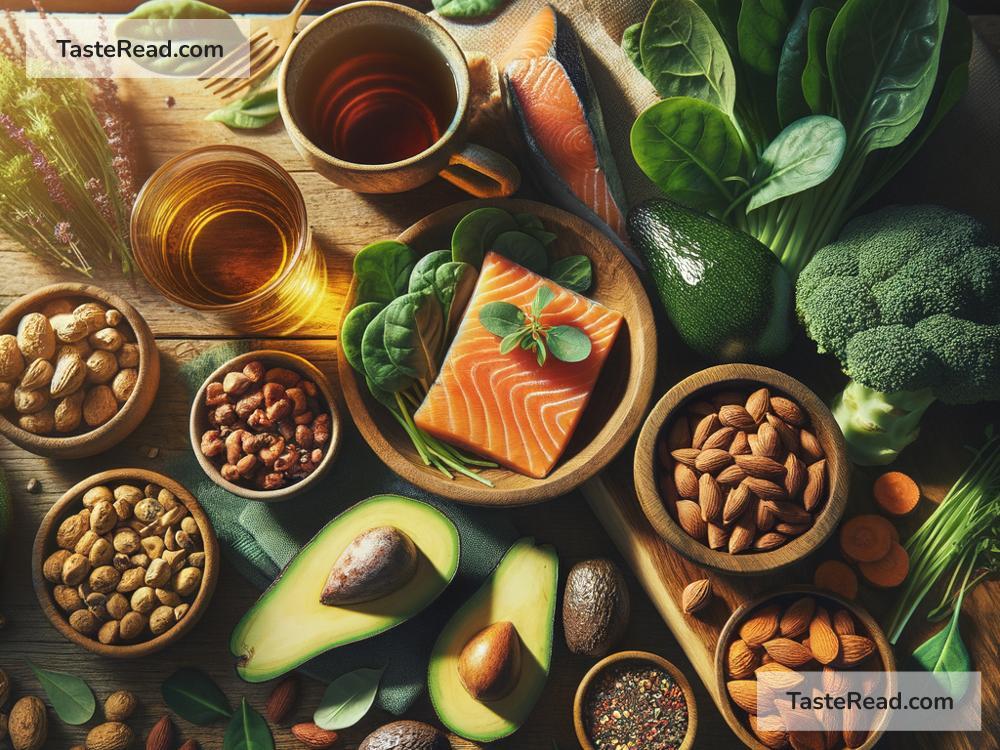Foods That Reduce the Risk of Adrenal Fatigue
In today’s fast-paced world, many people constantly feel tired, overwhelmed, and stressed. Sometimes, this isn’t just about not getting enough sleep or having too many things to do. It could be a sign of something deeper: adrenal fatigue. Adrenal fatigue happens when your adrenal glands – the tiny organs above your kidneys that produce stress hormones like cortisol – start to struggle because you’re pushing yourself too hard.
While adrenal fatigue isn’t officially recognized as a medical condition by all doctors, the symptoms—like exhaustion, poor sleep, brain fog, cravings, and weakened immunity—are real for many people. The good news is that there are ways to help your adrenal glands, and one of the most effective strategies is to focus on what you eat. Certain foods can support your adrenal health so you can feel more energized and balanced.
Here’s a simple guide to foods that can reduce the risk of adrenal fatigue and nourish your body.
1. Balance Blood Sugar with Slow-Digesting Carbs
When you’re stressed, your body uses a lot of energy. If your blood sugar is constantly rising and crashing (like it does when you eat sugary snacks and processed carbs), your adrenal glands have to work even harder. This can lead to burnout over time.
Instead, choose slow-digesting carbs that keep your blood sugar stable. These include:
– Sweet potatoes
– Brown rice
– Quinoa
– Oats
– Whole grains
These foods provide a steady source of energy without putting too much pressure on your adrenal glands. Pair them with a protein source for even better blood sugar control.
2. Include Foods Rich in Vitamin C
Your adrenal glands use a lot of vitamin C to produce cortisol and other stress-related hormones. When you’re constantly stressed, your vitamin C levels can drop. That’s why eating foods rich in this nutrient is essential. Vitamin C also supports your immune system, which can become weaker if you’re dealing with adrenal fatigue.
Some vitamin C-packed foods include:
– Oranges
– Bell peppers
– Kiwi
– Strawberries
– Broccoli
– Kale
Try to incorporate these foods into your meals or snacks throughout the day.
3. Get Enough Magnesium
Magnesium is known as a “relaxation” mineral. It helps calm your nervous system and can support your adrenal glands, especially when you’re feeling stressed. Magnesium also plays a role in energy production, making it a key nutrient for fighting fatigue.
Magnesium-rich foods include:
– Leafy greens like spinach and Swiss chard
– Almonds and cashews
– Pumpkin seeds
– Avocados
– Dark chocolate (in moderation!)
Consider snacking on a handful of nuts or enjoying a green smoothie to boost your magnesium intake.
4. Boost Your Energy with Healthy Fats
When dealing with stress, your body needs healthy fats to produce hormones and feel energized. Healthy fats also keep you full longer, which can help reduce cravings for unhealthy snacks.
Good sources of healthy fats include:
– Avocados
– Olive oil
– Coconut oil
– Nuts and seeds
– Fatty fish like salmon
These fats are easy to add to your meals. Drizzle olive oil over salads, enjoy avocado on toast, or snack on some nuts when you’re hungry.
5. Support Your Adrenal Glands with Protein
Protein provides your body with essential amino acids needed for hormone production and energy. It also helps stabilize blood sugar levels, which prevents adrenal overload caused by sugar crashes.
Include high-quality protein sources in your diet, such as:
– Eggs
– Chicken
– Fish
– Beans and lentils
– Greek yogurt
A balanced plate with protein, carbs, and healthy fats can keep your energy steady throughout the day.
6. Stay Hydrated and Avoid Excessive Caffeine
Water is an overlooked nutrient but an essential one. Dehydration puts added stress on your adrenal glands, so make sure you’re drinking enough water throughout the day. If you like coffee, try to limit it to one cup in the morning. Too much caffeine can overstimulate your adrenal glands and worsen fatigue over time.
You can also try herbal teas like chamomile or rooibos, which are caffeine-free and help soothe your nervous system.
7. Cut Back on Sugary and Processed Foods
Foods high in sugar and artificial additives create a rollercoaster effect on your energy and blood sugar levels. This forces your adrenal glands to work harder, increasing the risk of fatigue.
Swap processed snacks for whole, nutrient-rich foods instead. For example, choose fruits instead of candy or fresh veggies instead of chips.
8. Snack on Adaptogenic Foods
Adaptogens are natural substances that help your body handle stress better. Some adaptogenic foods and herbs include:
– Ashwagandha
– Maca root
– Reishi mushrooms
– Holy basil
You can find these as powders or teas. While they aren’t quick-fix solutions, they can offer long-term support for reducing stress and adrenal fatigue.
Final Thoughts
Your adrenal glands play a critical role in managing stress and keeping your body in balance. If you’ve been feeling tired, overwhelmed, or noticing unusual cravings, your diet could be affecting your adrenal health. By focusing on nutrient-rich foods like slow-digesting carbs, vitamin C, magnesium, healthy fats, and protein, you can give your adrenal glands the support they need. Remember to stay hydrated and avoid excessive sugar or caffeine, as these can disrupt your energy. Small, consistent changes in your diet can make a big difference in reducing the risk of adrenal fatigue and helping you feel better overall.
Taking care of yourself starts with what you eat. So, the next time you plan your meals, think of them as fuel to keep your body balanced, energized, and ready to tackle whatever life throws your way!


